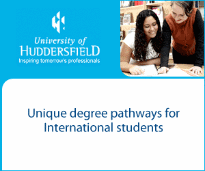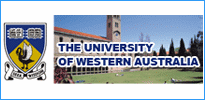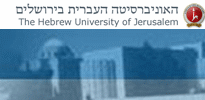Turkmenistan: Turkmenistan Education Profile 2012
2012/04/05
Turkmenistan Education Profile 2012
It is generally known that education is a factor that determines the fate of the state. The economic, political and spiritual progress of any country, any society depends on civil and professional efforts of every citizen. If a generation is well-educated, broad-minded, energetic, deeply patriotic, morally pure the society flourishes and the state reaches new heights. It is quite natural that today when Turkmenistan is at a new historical stage the reforms aimed at fundamental and qualitative renovation of education, science and culture have been launched along the social and economic transformations. The principles based on the national spiritual values, national practice and global achievements in these spheres underlie the new education reform. That is dictated by the concern for the wellbeing of the state and welfare of the Turkmen people, the future of young citizens of Turkmenistan and the country.
Paramount significance attached by the Turkmen leader to improvement of the activities of educational and training establishments and compliance of the national education system with international standards is proved by the fact that a day after being elected President of Turkmenistan Gurbanguly Berdimuhamedov signed the special Decree “On Improvement of the Education System”. Few days later, on March 4, 2007 the Resolution that launched fundamental reforms in the national education system was issued. These documents profoundly contributed to establishing the national education system and bringing up the younger generation, training highly qualified personnel for all sectors of the national economy. They are aimed at implementing fundamental reforms to make high-quality education and training available to youth.
According to these documents school education lasts for ten years. The curricular of secondary and higher schools and even pre-school establishments were revised and modified to focus on the study of the laws of development of a society, law basics, morality, economics, politics, ecology, social science and physical culture. The disciplines on vocational training were withdrawn from the curricula of the 7th and 9th forms for a great number of the vocational schools opened in the country. As is known Turkmenistan’s foreign policy strategy prioritizes wide international cooperation. Therefore, the state requires and will require specialists with the perfect knowledge of foreign languages in various sectors. To achieve this goal the educational packages at secondary schools, universities and preschool institutions focus on the study of foreign languages.
Embracing all the levels of the education system the Re¬so¬lution regulates the weekly teaching load of secondary and vocational school teachers and university teaching staffs and a number of children in the groups taught at schools and preschool institutions. All of this allowed teachers to pay more attention to every child, teenager, student and therefore, create the conditions conducive to revealing their abilities and identifying their aptitudes. Special attention was paid to children who live in remote rural areas. They continue education at the boarding schools in the administrative centres of the velayats. The number of students admitted to the higher schools was increased. School lea¬vers can enter an institute, university, academy without previous working experience as it used to be before.
The ultimate goal of the new education policy – to establish the effective national system for training specialists, whose knowledge and skills must comply with international requirements. Today Turkmen youth has an opportunity to receive education and occupational training in compliance with international standards at the best educational institutions abroad as well. The need for the education reform is obvious for only high educational attainment, availability of new knowledge and skills to youth and high moral and ethical norms can ensure full realization of the profound potential of the country.
Large-scale construction of pre-school establishments and schools, health care institutions, cultural and art centres for children and youth, sports grounds and entertainment centres supplied with state-of-the-art equipment and educational and technical aids was started in Turkmenistan in the first years of independence. This tradition is maintained in the epoch of New Revival. Today dozens of schools and kindergartens, sports complexes meeting modern requirements are under construction in Turkmenistan. Construction of these important social and cultural facilities is to promote increasing the standards of living of children, implementing the large-scale education reform based on the concern for young citizens of the country.
Along with the secondary educational establishments there are a number of the specialized schools and kindergartens, schools for gifted children, specialized educational and training centres in the country. The unique children’s complex – UAE President Sheikh Zayed bin Sultan Al Nahyan Orphan’s Palace is situated at the picturesque foothills if the Kopetdag mountains. The establishment of the Orphans Fund that has guardianship over graduates of the specilaized child care institutions vividly evidences concern for young citizens in Turkmenistan
Turkmenistan’s policy of youth education and integrated development prioritizes encouragement of children’s art. For this purpose the schools of arts are opened in all the regions of the country, the new buildings of the Turkmen State Puppet Theatre and the Alp Arslan Turkmen National Youth Theatre, the Ice Pa¬lace and water sports complex, the World of Turkmen Fairytales – the largest amusement park in the region, sports complexes and stadiums were constructed. The list of the unique facilities is rep¬lenished every year with children’s health-improving centres in the picturesque locality of Geokdere. International cultural and art contacts play an important role in encouraging children to develop their creative abilities. The children’s and youth groups from Turkmenistan participate in the contests and festivals in the country and abroad. Each year thousands of young reciters, dancers, drama artists, amateur singing and folk ensembles from five regions of the country and Ashgabat take part in the art competitions held in the framework of the national contests – Garashsyzlyging merjen daneleri – Altyn asyra, Gorkut owazlary Altyn asyra, Ing eyjejik gyzjagaz, Merdana nesil.
The favourable conditions are created in the country so that young people can receive high-quality education and training and then faithfully serve the Motherland. Today the higher schools in Turkmenistan offer a wide range of specialities and fields of learning. This range is regularly extended through introducing new specialities.
Turkmenistan inherited an education system from the Soviet Union with comparatively high standards. It was also quite accessible for all social and regional strata. After the dissolution of the Soviet Union, this educational system suffered as a result of the emigration of Russian specialists and professionals who had been its mainstay. In addition, the education policy of former President Niyazov led to the de facto destruction of higher education. The new President Berdymukhamedov reestablished the academy of science and university studies to five years. High school education was also extended to ten years. The state has promoted the study of Russian and other foreign languages. In September 2007, teachers’ salaries and student stipends were increased up to 40%.
- Turkmenistan News
-
- TURKMENISTAN: Turkmenistan seeks to raise investments in textile industry
- TURKMENISTAN: Turkmenistan concerned over Caspian Sea ecological state
- AFGHANISTAN: Global growth will be disappointing in 2016: IMF's Lagarde
- TURKMENISTAN: Energy-rich Turkmenistan intends to launch the third stage of development of the giant Galkynysh gas field
- TURKMENISTAN: Turkmenistan sets date for int’l cotton fair
- TURKMENISTAN: The development of oil and gas resources in the Turkmen sector
- Trending Articles
-
- INDIA: Indian central bank chief to step down in surprise move
- AFRICA: African press review 21 May 2016
- KENYA: Kenya's tea industry moves toward strategic diversification
- SERBIA: China’s Xi sees Serbia as milestone on new ‘Silk Road’
- CHINA: United States sees China investment talks ‘productive’ after new offers
- GREECE: Migration and Women’s Health: A Neglected Issue in Need of Action






.gif?1356023993)






